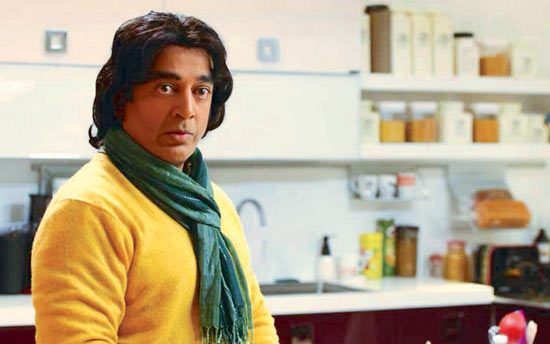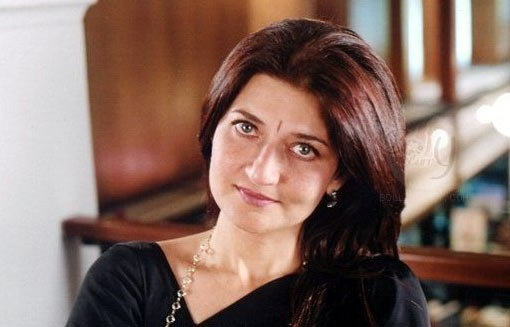 | « Back to article | Print this article |
'Item songs are not responsible for rape'
After the Delhi gang-rape brought India's focus to a very common but untackled crime, much of the blame for the way some men view women has been laid at Bollywood's door, particularly the way women have been portrayed in Hindi films.
Some film personalities also seemed to think so, as Shabana Azmi tweeted: 'Celebration of a woman's sensuality is healthy but commodification is not and our heroines will do well to make more discerning choices.'
Farhan Akhtar also acknowledged that harassment of woman was a common element in many Indian films.
'There is definitely something wrong in a society where men feel they can get away with sexually harassing or raping a woman,' Akhtar wrote in his India Today column. 'As a filmmaker, I must also look inward to see if the industry that I belong to could be partially responsible in propagating this kind of mindset. And I must say, sadly so, the answer is yes.'
We asked a few film personalities about their views. This is what they had to say:
Chitrangada Singh
Chitrangada is not new to item numbers. She performed a sexy number in Shirish Kunder's Joker, which was quite popular despite the film's fate.
The actress is currently a part of a film called Inkaar, which revolves around sexual harassment at the workplace.
"The Delhi rape case was an unfortunate incident," she says. "But I totally disagree that Bollywood is responsible for such things. I don't think we should compensate for the sick mentality of some people by changing ourselves. Yes, there should be some responsibility and there shouldn't be objectification of women. But you cannot object to item songs.
"I don't think (the reasons for rape) is only due to sexual problems. It could be because of unemployment or some kind of pressure. For them, it's a relief and a sense of power over something.
"Item songs were there even when Helenji danced. Then, people would think differently.
"I read about a three-year-old child's case in Indore. I refuse to believe that item songs are responsible for this. I think it's in the head."
Kamal Haasan: Cinema is just a reflection of society
Please don't blame cinema," says Kamal Haasan.
"Cinema is just a reflection of society. If people say a lot of bold content is shown in our films today, I think that boldness exists in our society.
"Today, you and I, the judiciary and the politicians, as members of the society, we need to change. We are looking for a fulcrum with which we can bring about these changes. This isn't the first time such a heinous crime has been committed in India.
"We need to bring about a change in society and I am sure it will happen soon. In the past, people said crime doesn't pay, so don't do it. Then came a time when it was said that crime pays but there is no insurance. Today, after looking at our politicians, we can easily say that crime pays and there is insurance. This is the reason why so much crime is happening in India.
"The quality of our politicians needs to improve. I am not saying there aren't any good politicians in our country but we need more of them," Haasan says passionately.
Sudhir Mishra: There are few item songs that reflect the wrong attitude
Filmmaker Sudhir Mishra has made some brilliant films like Hazaaron Khwaishein Aisi and Is Raat Ki Subah Nahin, and is ready with his next film Inkaar with Chitrangada and Arjun Rampal.
"We should not make films from a loafer's point of view," he says. "All of us have to be responsible for the films we make because it reflects our attitudes. Bollywood reflects some attitudes that are prevalent in the society, and some people in the industry may reflect that but not everyone.
"There have been many films in the 1980s and 1990s, made from a loafer's point of view. I don't want to name them. Now, the films are better. Of course, Bollywood has done pro-women films even 40 years ago -- about love marriage, and the right to chose.
"Items songs are not responsible for rapes in this country though some of them reflect a wrong attitude. Personally, I don't like songs in my films because the women in my films are intelligent and powerful.
"The item song in Vishal Bhardwaj's Omkara (Beedi Jalaayle) was good. It celebrates women's sensuality.
"The Hindi film industry has done some remarkable pro-women work -- films by V Shantaram, Bimal Roy, Shyam Benagal, Guru Dutt and most of today's young directors like Zoya and Farhan Akhtar, Dibankar Banerjee, Vikram Motwani and Anurag Kashyap.
"There shouldn't be any restrictions on expression. When you allow free expression, you also see bad things coming out but there is no point in brushing it under the carpet.
"You can confront it, have a good debate and come to a better conclusion. But nothing is achieved by banning something. I don't agree with bans.
"Film people should exercise caution and be responsible for what they do.
"How can Bollywood be responsible for rape? There's hardly any Bollywood in small villages. Bollywood is a soft target. People known to women are responsible for 90 percent of the rapes in the country. I don't say Bollywood is perfect but I don't think Bollywood is responsible for it either," he says.
Arjun Rampal: Who decided the pelvic thrust is vulgar?
Arjun Rampal was very clear in his mind, and seemed to think Bollywood was in no way responsible for the way some men view women.
"Aren't you making excuses for the rapist?" he asks. "Why are we making excuses for people? Make severe rules and laws.
"And who decided the pelvic thrust is vulgar?" he continues. "Man decided that in his mind. Was rape happening in America when Michael Jackson and Elvis Presley were doing it? When these people do it, it's fine but when our actresses do it, it's vulgar? Don't blame our women for it. Don't blame society, or films. If you don't like the channel, change it because there are 1,000 other TV channels. If you feel it's provoking bad thoughts in your mind, please flip the channel or shut your eyes!"
Sarika: Filmmakers include item songs as people like to watch it
Sarika, who performs an item number in her forthcoming film David, feels these songs are not the reason for rape in the country.
"It is wrong to blame the film industry," she says. "Filmmakers include item songs as they want to cater to certain audiences, who want to see these songs. If the people decide not to watch it, filmmakers will not include an item number. It is very frivolous to say item numbers instigate the mindset of the audience.
"The issue we face today in society is very huge. We cannot just blame an item song or what a girl is wearing or a song that she is listening to. It is a very deep-rooted issue, and the biggest problem is the mindset. We have to change the mindset of the people to address these issues," she says.




